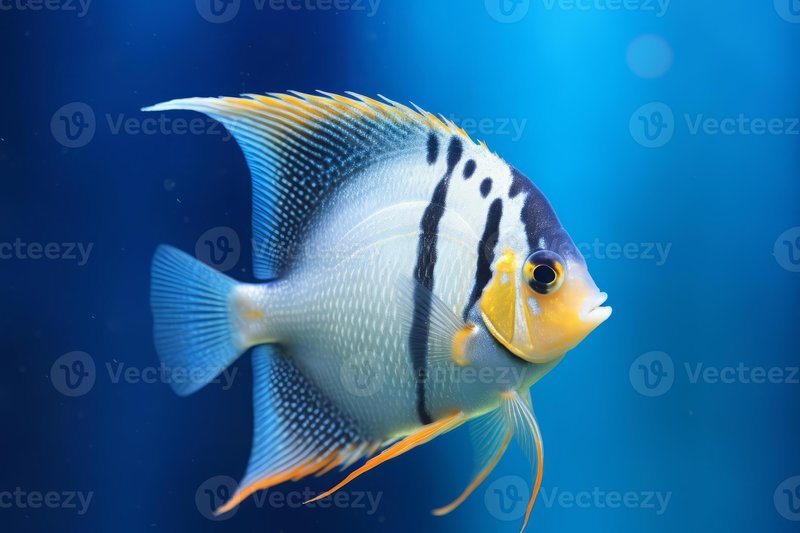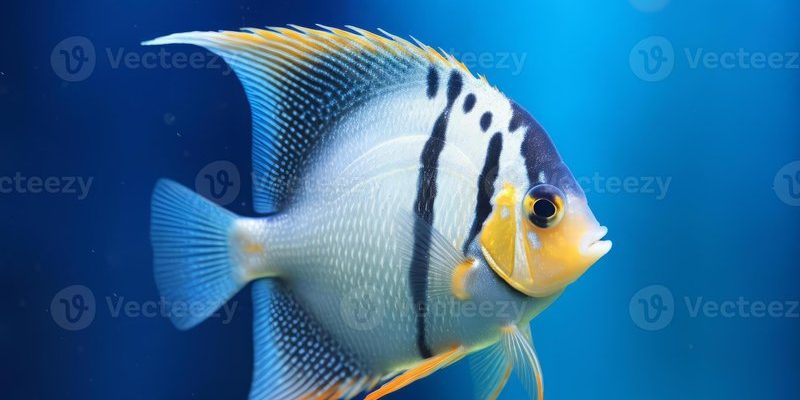
When we dive into the world of angelfish myths, it’s essential to understand how these stories reflect the cultures that created them. For instance, in some beliefs, angelfish symbolize protection and love, while in others, they’re thought to bring bad luck. These conflicting ideas add layers to our appreciation of these unique fish, giving them a depth that’s not immediately obvious when you first see them swimming around. Now, let’s explore some of these myths and cultural beliefs, unraveling the truths behind them.
The Symbolism of Angelfish in Different Cultures
Angelfish have a rich tapestry of symbolism in various cultures around the world. In many regions, they are associated with beauty and harmony. The graceful movement of angelfish often reminds people of peace and tranquility. For instance, in Asian cultures, these fish are seen as symbols of good fortune, often featured in artwork and home decor to attract luck and prosperity.
However, not all beliefs are positive. In some Western cultures, angelfish carry a more sinister reputation. They’ve been linked to misfortune, especially when spotted in the wild. You might hear whispers of how encountering one signifies that you’re in for some bad luck or a rough patch ahead. This duality in symbolism reflects how societies can interpret the same creature in drastically different ways, showcasing their unique values and beliefs.
Myths About Angelfish Behavior
Let’s chat about some common myths surrounding angelfish behavior. A prevalent belief among novice aquarists is that angelfish are extremely aggressive and territorial. Here’s the thing: while it’s true that angelfish can be protective of their space, especially during mating, they don’t always exhibit aggressive behavior. With the right setup and enough room in the tank, angelfish can coexist peacefully with various tank mates.
Another myth is that angelfish cannot be kept in community tanks with other species. This misconception can make prospective fish owners hesitant to introduce these stunning fish into their aquariums. In reality, when paired with compatible species, angelfish can thrive in a peaceful community setting. It’s all about choosing the right companions—think of it as having a balanced friend group. Mixing the right personalities can lead to a harmonious living environment!
Angelfish and Their Spiritual Significance
In some spiritual beliefs, angelfish are seen as bearers of messages or omens. Certain cultures believe that when angelfish appear in dreams, they symbolize the arrival of spiritual guidance or enlightenment. Dreamers might interpret seeing an angelfish as a sign that help is on the way, or that they are on the right path in life. This interpretation can be empowering, suggesting that these beautiful fish act as messengers of hope.
In other contexts, angelfish have been revered as symbols of transformation and renewal. Much like the cycles of nature, where seasons change and life adapts, angelfish embody the essence of change. This belief often prompts individuals to contemplate their life journeys when they think of these enchanting fish, connecting them to new beginnings and personal growth.
Misconceptions About Angelfish Care
Misunderstanding how to care for angelfish can lead to some serious myths. One common belief is that these fish are low-maintenance pets, suitable for beginners. While they are truly stunning to look at, angelfish require specific conditions to thrive. Their ideal tank environment includes warm water and a spacious aquarium, usually around 20 gallons or more.
Another misconception is that angelfish can survive in any water condition. This isn’t true! Angelfish prefer slightly acidic to neutral pH levels and a stable water temperature. Failing to provide these conditions can lead to stress and health issues, which might cause unnecessary heartache for both the fish and their caretakers. So, if you’re thinking about adding angelfish to your home, be prepared to put in the effort to create a suitable environment.
Angelfish and Their Role in Aquatic Ecosystems
Angelfish don’t just enchant aquarium enthusiasts; they play a crucial role in their natural ecosystems too. In the wild, they help maintain a balanced aquatic environment. By feeding on algae and other microorganisms, they contribute to the health of their habitat. This behavior is not only vital for their survival but also keeps their surroundings vibrant and thriving.
However, there’s a myth that angelfish are detrimental to the ecosystem due to their feeding habits. Some believe that they overpopulate and exploit resources, disrupting the balance. In reality, like most species, they are part of a complex food web that regulates the ecosystem. Their presence supports various other wildlife, showcasing the interconnectedness of nature—a beautiful reminder that all creatures, including angelfish, have their roles to play.
The Connection Between Angelfish and Love
In various cultures, angelfish symbolize love and companionship. This belief often stems from their unique mating rituals, which are fascinating to observe. Angelfish pair up for life, showcasing loyalty and partnership. This behavior has led to the idea that keeping angelfish can foster love and harmony in your home.
You might also find yourself drawn to stories that highlight the idea of angelfish attracting love. Some people believe that having angelfish in your space can enhance romantic relationships and promote emotional connections. While there’s no scientific evidence to back this, the symbolic link between these fish and love is undoubtedly charming. It’s like inviting a little bit of romance into your life through the beauty of nature.
Final Thoughts on Angelfish Myths
Angelfish are more than just eye-catching additions to your aquarium; they carry rich myths and cultural beliefs that spark our imagination and curiosity. From their symbolism in different cultures to the misconceptions surrounding their care, these stories deepen our appreciation for these elegant creatures.
By understanding the various myths associated with angelfish, we can better appreciate their role in nature and the cultural narratives that have developed around them. So, whether you’re a fish enthusiast or simply someone who enjoys the beauty of the natural world, take a moment to reflect on the fascinating stories that angelfish bring with them. After all, there’s always more to learn about our aquatic friends!

